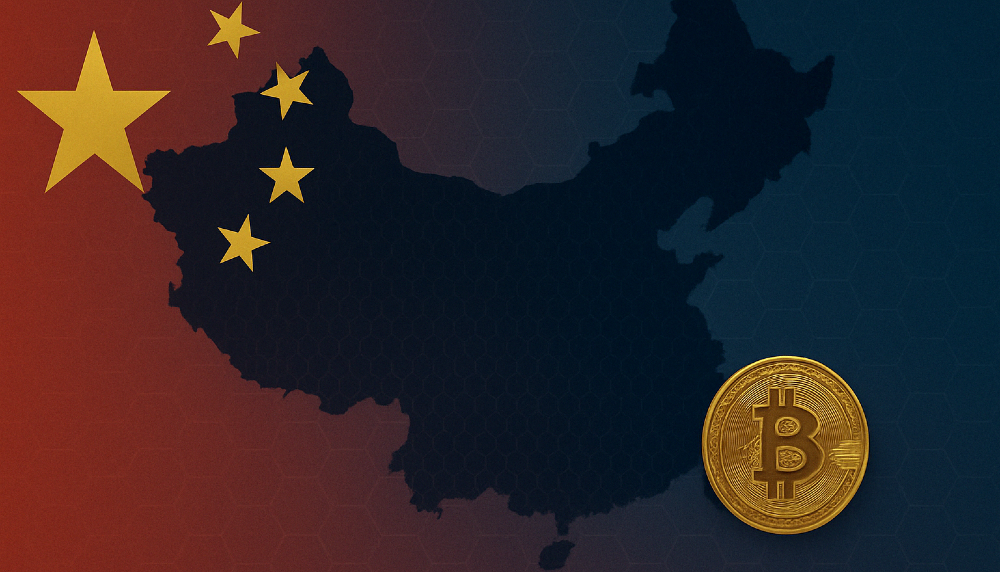As one of the strictest nations in the world when it comes to cryptocurrency, China has long maintained a ban on digital asset trading and mining. Yet, despite this rigid stance, the country finds itself in possession of a growing stockpile of confiscated cryptocurrencies. The irony is striking: a Government that outlaws crypto is now trying to figure out what to do with billions in digital assets seized from criminal activity.
A Legal Grey Zone
In recent years, Chinese law enforcement agencies have cracked down on various crypto-related crimes, from Ponzi schemes to illegal fundraising and money laundering. These investigations often lead to the seizure of large amounts of Bitcoin, Ethereum, and other digital tokens.
However, there’s no unified legal framework for how these seized assets should be handled. Some provinces reportedly sell the assets through third-party platforms, while others choose to hold them. Without national-level guidance, the process lacks transparency and invites both legal and ethical concerns.
Ethical Paradox: Prohibit Profit
This situation raises a question: Is it ethical for a government to profit from assets it deems illegal for its citizens to own or use? If a nation bans cryptocurrency for being volatile, risky, or destabilizing, should it be allowed to benefit financially from selling those same assets?
The paradox lies in the inconsistency of policy and practice. On one hand, China cites national security, capital flight, and consumer protection as reasons for its crypto bans. On the other hand, it potentially profits from the same assets when they are seized from criminals. This contradiction undermines the credibility of regulatory frameworks and raises public scepticism.
Moreover, such practices blur the line between law enforcement and opportunism. Citizens may question whether the aggressive pursuit of crypto-related offences is motivated by justice or financial gain. The lack of transparency in how these assets are sold or used further fuels mistrust.
In Western societies, similar practices would likely face intense scrutiny and public backlash. Governments are expected to uphold both the letter and spirit of the law. If they ban an asset, profiting from it, especially without public accountability, can appear hypocritical or even corrupt.
Ultimately, the ethical dilemma isn’t just about making money, it’s about trust. Transparency, consistency, and fairness must underpin any policy regarding seized assets, especially when those policies involve something as polarizing and disruptive as cryptocurrency.
A National Reserve?
Amid the growing amount of seized cryptocurrencies, Chinese policymakers are contemplating the establishment of a national cryptocurrency reserve. This initiative would involve the People’s Bank of China (PBOC) overseeing the management of these digital assets, potentially transforming them into a strategic financial resource.
The rationale behind this proposal includes:
- Strategic Asset Management: By centralizing control, the PBOC could leverage these assets to bolster the digital yuan or as a hedge against economic uncertainties.
- Regulatory Consistency: A unified approach would address the current fragmented methods of asset disposal by local governments, ensuring compliance with national policies.
- Transparency and Oversight: Centralized management would facilitate better tracking and auditing of these assets, mitigating risks associated with corruption or mismanagement.
This approach mirrors strategies proposed in other countries, such as the United States, where discussions about creating a national Bitcoin reserve have gained traction. Implementing a similar reserve in China could position the nation as a significant player in the global cryptocurrency landscape.
What the World Can Learn
China’s crypto dilemma offers valuable lessons for global regulators and law enforcement agencies:
- Consistency Matters: Laws must align with asset disposition policies to avoid hypocrisy and legal uncertainty. Countries with clear regulations for asset forfeiture, such as the U.S. Marshals’ process of auctioning seized Bitcoin, demonstrate that consistent frameworks are possible.
- Transparency Is Crucial: Without public audits or clear rules, governments risk losing public trust. Transparency measures, such as public ledgers of seized and sold assets or third-party audits, can build confidence in institutional integrity.
- Opportunity or Risk?: Holding onto seized crypto could be financially advantageous, especially in bull markets. However, it introduces security, volatility, and custodial risks that require strong infrastructure and policy planning.
- The Need for International Standards: Fragmentation in global policy invites arbitrage and misuse. China’s debate could encourage the development of multilateral agreements on how seized digital assets should be handled across borders.
Final Thoughts
As the crypto industry matures, more countries will face the same question China is grappling with today: What happens to seized digital assets? Whether they choose to liquidate, hold, or repurpose them, the decision will set a precedent for future policy.
At BlockDefenders, we believe that clear, ethical, and transparent frameworks are essential to making blockchain safer for everyone. China’s crypto dilemma may be complex, but it opens the door to a much-needed global conversation.
